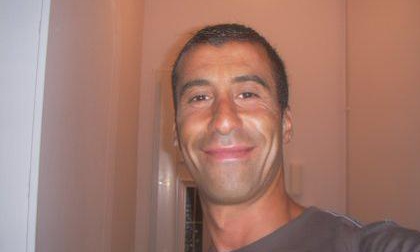Je Suis Ahmed
Salman Aldossary/Asharq Al Awsat
Monday, 12 Jan, 2015
Ahmed Merabet was one of the French police officers killed at the offices of French satirical newspaper Charlie Hebdo, and whose death the whole world saw in pictures beamed across the globe. He was lying on the side of the road injured after being shot by the men who carried out the attack as they were about to enter the offices. One of the gunmen returned to him once again as they were fleeing the scene, pointed his gun at Merabet’s head, and then shot him again—this time fatally—in the head. As the gunmen sped off in their vehicle they were heard to shout: “We have avenged the Prophet!”
Here we have a case where the killers—Cherif and Said Kouachi, the brothers who carried out the attack—were Muslim, where the person slain was a Muslim, but where the place the killing took place was France. Who, I wonder, is the Muslim among these three, and who is not?
It is no longer enough to simply condemn. It is not enough to say that Islam has nothing to do with these events, and that the terrorists do not represent Islam. In every one of these operations we will be able to say that 10, 20 or even 100 of these people do not represent Islam. But the reality is there are tens of thousands of them among us. And this is a bitter reality we must face, even if it angers or upsets us. These terrorist operations will continue, and we will no doubt continue to condemn them—but until when? God only knows. How can we convince French citizens, say, that these people are terrorists and don’t represent Muslims, when they continually use Islamic slogans such as “Allahu Akbar” (God is great)? And how can we then convince them if some of us then accuse them of being opposed to Islam and being involved in conspiracies against it while at the same time asking, “Why don’t they see the real Islam?” There are around 5 million Muslims in France, out of 45 million in the whole of Europe; it is they who have the most to lose from this, and not those craven fools who sit behind their computers making excuses for the killers and inciting violence and hatred.
We are lying to ourselves if we think ideologies and political ideas condoning violence are not going to spread among our societies. The fight against terrorism is not the job of security forces or the education system alone. The West realized this early on during its fight against groups such as the IRA, the Basque separatist group ETA, or the Red Brigades in Italy. It was not just these efforts which helped these groups eventually disappear or disintegrate. No, it was actually the European societies themselves, who chose to reject violence and embrace tolerance as general principles, agreeing that there is little or even no difference between the members of these violent organizations and those who offer their support to them from the sidelines. It is public opinion that prevents the spread of these groups within society. So, do we continue to bury our head in the sand and ignore Muslims who thought the attacks were an appropriate response to the insults to the Prophet Muhammad, or others who condemned the attack but followed this with a “but . . . ” which inadvertently provides an indirect excuse for the terrorists? If this is not considered as excusing such acts, then what on earth can be?
It is impossible for any security apparatus in the world to completely contain the phenomenon of terrorism and its perpetrators. There are certainly those who have been convicted of terrorist-related offences and they are currently languishing in jail. But there are others, who are free but certainly suspicious and dangerous, who remain at large among us because they are yet to commit a crime. It was the same for the Kouachi brothers. Authorities had been watching them but could not arrest them because there was no way to charge them with anything —in other words, they were known to be ticking time bombs, but no one knew when or where they would explode. We had the same situation with the border attacks in Arar in Saudi Arabia recently. One of the perpetrators had previously taken part in rallies calling for the release of convicted terrorists from prison. Saudi authorities regarded him as suspicious, but there was no evidence that he had committed a crime, so he went about freely. Security experts say that every suspicious person the authorities are tracking requires constant surveillance by around 25 individuals, who will all attempt to prevent them from carrying out a terrorist plot—something it is surely almost impossible to prevent all the time.
But let us return to Ahmed Merabet, who certainly represents Muslims. Ahmed emigrated to France with his family, integrated into its society, and died defending its security and values. Many expressed sympathy for him on social media and used the hashtag “#JeSuisAhmed” to express their solidarity. But sadly, when all is said and done, it will not be his name that will be remembered around the globe as an example of Islam, but those of Cherif and Said Kouachi, two men who represent an extremely small minority of Muslims. It is their names who will be remembered, at least until the next terrorist operation when new names will take their place, ones who will no doubt be given their excuses by the apologists and the “but . . . ” crowd.






















